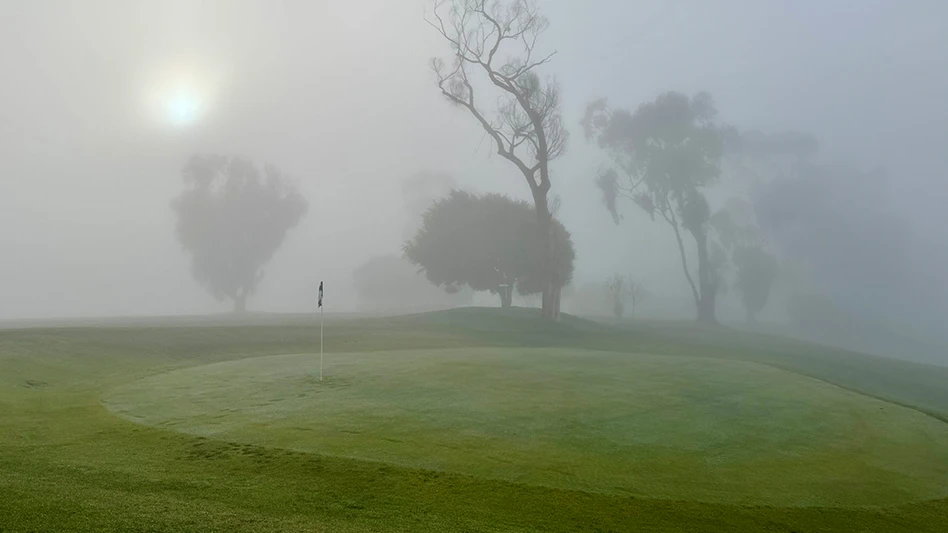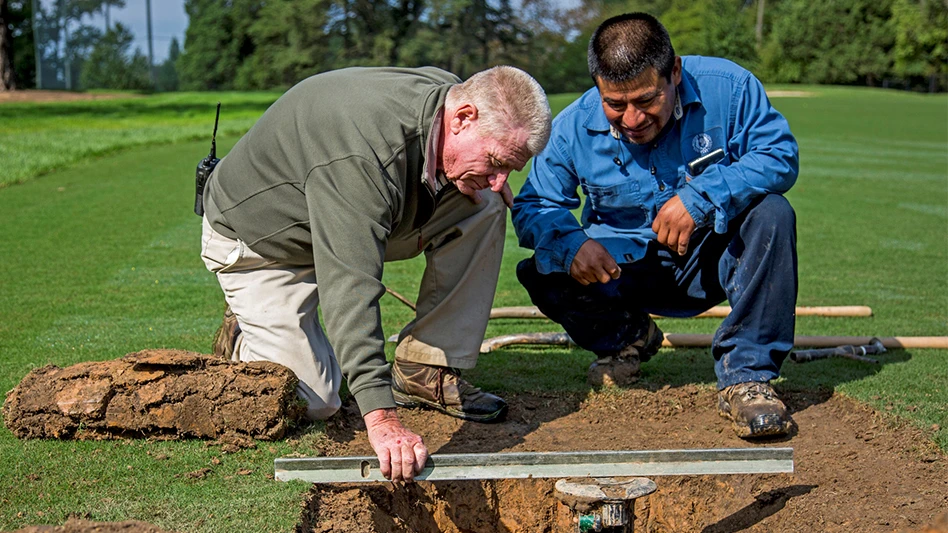Good will. The industry has a lot of it. One of the unique aspects about the golf course management industry is the comradery among golf course superintendents and the brotherhood that exists among them. It’s a friendliness among competitors that I haven’t seen in other businesses.
Superintendents continuously use better products, methods and technologies to manage turf and their staffs better, as well as meet golfers’ expectations through the conditions of the courses they maintain. When someone finds something that works better or finds a better way to do something, he’s not shy about telling other superintendents what’s working for him or what isn’t. And there seems to be few trade secrets. Most golf course superintendents want their fellow professionals to excel at their jobs and advance within the industry.
Another example of this brotherhood is when superintendents give each other a helping hand when someone hosts a major tournament. With millions of people watching and thousands visiting a course for such a tournament, the superintendent wants the course to shine. Other superintendents want the course to shine, too. That’s why there are many superintendents and assistant superintendents from throughout the country that come to the course that’s hosting the tournament to volunteer their time and efforts to help a fellow superintendent. Many superintendents work behind the scenes to give one superintendent the limelight as professional golfers praise the conditions of such a well-maintained course. That’s not selfish.
Recently, late this summer and early fall, there was another example of superintendents’ care for each other after many well-maintained courses in Florida took a beating from Mother Nature. Four hurricanes – Charley, Frances, Ivan and Jeanne – tore through Florida and wreaked havoc, damaging some of the country’s most beautiful golf courses.
There are about 1,300 courses in the Sunshine State – the most golf courses per state, according to the National Golf Foundation – and 350 to 400 of them were damaged from the hurricanes. There have been estimates as much as $30 billion worth of overall damage in Florida. The cost of cleanup for some courses is between $800,000 and $1.1 billion. Mother Nature can be vicious, but who thought like this. Not only has she put a hurt on the physical conditions of these courses, but she’s also put a clamp on their revenue streams. The negative affects of the damage will last for the rest of the year and into next year for some of these courses. Owners must wonder when they’re going to wake up from this horrible nightmare.
Randy Waldron, superintendent at the Golf Club of Georgia in Alpharetta, heard about golf courses sustaining hurricane damage in Florida and wanted to do something to help. So he contacted a friend, ChampionsGate Country Club superintendent Bobby Ellis, to see what he could do. Ellis referred him to Parsons, and Waldron sent one of his assistants, Steve Sisson, and some equipment to Diamondback.
Because Waldron and some of his staff are from Florida, they wanted to help out, especially a course that didn’t have a big budget. The course maintenance staff at the Golf Club of Georgia convinced a local supplier to donate a chain saw for Sisson to take with him, and the staff collected about $300 to pass along to Diamondback’s maintenance staff. Sisson helped out at Diamondback for a week while he was being paid by the Golf Club of Georgia.
Now that’s lending a helping hand.
Superintendents are lucky and should be thankful they’re in an industry that’s so helpful and kind. Many other industries, because of competition and budget pressures, are much more vicious – kind of like, well … Mother Nature at times. GCN

Explore the November 2004 Issue
Check out more from this issue and find your next story to read.
Latest from Golf Course Industry
- From the publisher’s pen: New? No way!
- Indiana course upgrades range with synthetic ‘bunkers’
- Monterey Peninsula CC Shore Course renovation almost finished
- KemperSports and Touchstone Golf announce partnership
- PBI-Gordon Company hires marketing manager Jared Hoyle
- Mountain Sky Guest Ranch announces bunker enhancement project
- GCSAA names Joshua Tapp director of environmental programs
- AQUA-AID Solutions bolsters Sunshine State presence





